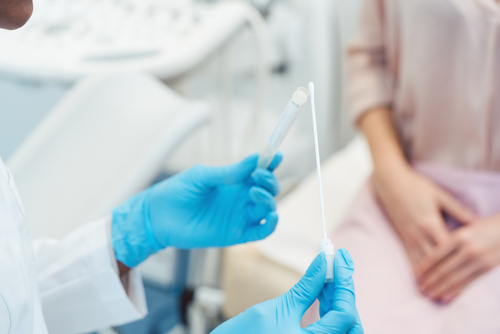It is estimated that there are more than 20 million cases of sexually transmitted diseases in the United States every year. That’s more than half of the population! And while most people think of STDs as a problem that only affects young people, the truth is that anyone can get an STD, regardless of their age or sex. In fact, some sexually transmitted diseases can be deadly. Learn about the types of STDs out there, what to do if you contract one, and how you can protect yourself.
What Are Sexually Transmitted Diseases (STDs)?
Sexually transmitted diseases, also known as sexually transmitted infections (STIs) or venereal diseases (VDs), are infections that are passed from one person to another through sexual contact. This includes vaginal, anal, and oral sex, as well as any skin-to-skin contact with the genitals.
There are many different sexually transmitted diseases out there, and they can affect both men and women in different ways.
The Most Common STDs In The United States
Sexually transmitted diseases can vary by location, keep this in mind if you are traveling or moving to a new area or abroad. Some areas may be considered hot spots and you should take extra precautions not to involve in risky intimate relationships. Surprisingly, Alaska ranks #1 in the United States for the highest rate of STDs per 100,000 people.
Chlamydia
Chlamydia is a sexually transmitted disease that is caused by the bacterium Chlamydia trachomatis. It is the most common sexually transmitted disease in the United States, and it is estimated that there are 2.8 million new cases every year.
Chlamydia can infect both men and women and can cause serious health problems if it is not treated. Symptoms of chlamydia can include genital pain, abnormal vaginal discharge, fever, and pain during urination.
If you think you may have chlamydia, it is important to seek treatment right away. Chlamydia can be easily treated with antibiotics, but if it is left untreated it can lead to serious health problems such as infertility and chronic pelvic pain.
Gonorrhea
Gonorrhea is a sexually transmitted disease (STD) caused by the bacterium Neisseria gonorrhoeae. It can infect both men and women and can cause serious health problems if not treated. Gonorrhea is spread through contact with the penis, vagina, mouth, or anus. Symptoms of gonorrhea vary depending on the site of infection, but may include discharge from the penis or vagina, pain when urinating, itching, and swollen glands. Left untreated, gonorrhea can lead to infertility, pelvic inflammatory disease, and other serious health problems.
Gonorrhea is treated with antibiotics. It is important to seek treatment if you think you may have been infected with gonorrhea, as the disease can cause serious health problems if not treated. You can reduce your risk of getting gonorrhea by using condoms and other barrier methods during sex.
Hepatitis B
Hepatitis B is a sexually transmitted disease that is caused by the hepatitis B virus. This virus attacks the liver, and can cause serious damage. In some cases, it can lead to liver cancer or death.
Hepatitis B is spread through contact with infected blood or body fluids. It can be passed from mother to child during childbirth, and it can also be spread through unprotected sex.
Symptoms of hepatitis B include fever, fatigue, nausea, and vomiting. In some cases, the virus can lie dormant for years before causing any symptoms.
If you think you may have hepatitis B, it is important to see a doctor right away. Treatment options are available, but early diagnosis is key. Left untreated, hepatitis B can cause serious health problems.
You can reduce your risk of getting hepatitis B by getting vaccinated and using condoms and other barrier methods during sex.
Herpes
Herpes is a sexually transmitted disease that is caused by the herpes simplex virus. There are two types of herpes simplex virus- HSV-1 and HSV-2. HSV-1 is the most common type of herpes and it is typically associated with cold sores around the mouth. HSV-2 is the most common type of herpes that is sexually transmitted.
Herpes can be spread through any type of sexual contact, including vaginal, anal and oral sex. It can also be spread from skin-to-skin contact with an infected area. Herpes is most commonly spread during the early stages of an infection, when it may be mistaken for a cold sore or fever blister.
Symptoms of herpes vary depending on the type of herpes. HSV-1 may cause mouth sores, fever and swollen lymph nodes. HSV-2 may cause genital sores, Fever and aching muscles. In some cases, there may be no symptoms at all.
There is no cure for herpes, but there are treatments available that can help relieve symptoms. Treatment options include antiviral medications, over-the-counter creams and ointments, and lifestyle changes.
It is important to remember that herpes is a sexually transmitted disease and it can be passed on to other partners. To reduce the risk of spreading herpes, use condoms and limit your number of sexual partners. If you are infected with herpes, talk to your partner about the disease and how to protect themselves.
Human Papillomavirus (HPV)
Human Papillomavirus is a sexually transmitted disease that is caused by the human papillomavirus. HPV is the most common sexually transmitted infection in the United States. There are more than 40 types of HPV that can infect the genital areas of both men and women. Some types of HPV can cause cervical cancer in women. Other types of HPV can cause genital warts in men and women. There is currently no cure for HPV, but there are treatments available for the symptoms.
HPV is spread through sexual contact with someone who is infected with the virus. This includes vaginal, anal, and oral sex. HPV can also be spread through skin-to-skin contact with an infected area, such as the genital area. HPV is most commonly spread through sexual contact with someone who has not been vaccinated against HPV.
There are a number of ways to reduce your risk of getting infected with HPV. The best way to prevent HPV is to get vaccinated. The HPV vaccine is available for both men and women. Other ways to reduce your risk of getting infected with HPV include using a condom and being in a monogamous relationship.
If you are sexually active, it is important to get tested for HPV regularly. The HPV test can be done as part of a routine Pap smear. If you are infected with HPV, there are treatments available that can help to clear the virus. It is important to remember that there is no cure for HPV, but there are treatments available for the symptoms.
Syphilis
Syphilis is a sexually transmitted disease caused by the bacterium Treponema pallidum. It can cause serious health problems if not treated, including blindness, deafness, and even death.
Syphilis is spread through contact with an infected person’s blood, semen, or vaginal fluids. The early stages of syphilis are often mild and may be mistaken for other diseases.
The STD Syphilis can be treated with antibiotics, but early diagnosis and treatment is important to prevent serious health problems. Condoms can help reduce the risk of getting syphilis, as well as other sexually transmitted diseases.
If you think you may have been exposed to syphilis, it is important to get tested right away. Early diagnosis and treatment of syphilis is crucial for preventing serious health problems.
HIV/AIDS
HIV/AIDS is a sexually transmitted disease that is caused by the human immunodeficiency virus (HIV). HIV attacks the immune system, and over time can cause AIDS (acquired immunodeficiency syndrome). AIDS is a life-threatening disease that can affect different parts of the body.
There is currently no cure for HIV/AIDS, but there are treatments available that can prolong a person’s life. With proper treatment, many people with HIV/AIDS can live long, healthy lives.
HIV is spread through unprotected sexual contact, from mother to child during pregnancy or childbirth, and through blood transfusions. There is also a risk of HIV infection from shared needles or other drug paraphernalia.
There are no symptoms of HIV infection in the early stages, so it is important to get tested regularly if you are sexually active.
There are other types of STDs, of course, but these are the most common. Each of these diseases can cause serious health problems if left untreated.
How Do You Get An STD?
There are a number of ways to get sexually transmitted diseases (STDs), but the most common way is through sexual contact with someone who is infected.
Other ways to STDs can be transmitted include:
- Vaginal sex
- Anal sex
- Oral sex
- Skin-to-skin contact with the genitals
- Sharing needles or other injection equipment
How Can You Protect Yourself From Getting An STD?
There are a number of ways to protect yourself from getting sexually transmitted diseases, including:
- Get vaccinated – HPV and Hepatitis B can be prevented with vaccinations.
- Use a condom – condoms offer good protection against most sexually transmitted diseases.
- Be in a monogamous relationship – this will reduce your risk
Sexually transmitted diseases are a serious health concern, and it is important to know how to protect yourself from getting them. If you are sexually active, it is important to get tested regularly for STDs. Early diagnosis and treatment of STDs are crucial for preventing serious health problems.
See A Gynecologist in Cool Springs and Brentwood, Tennessee for STDs
For screening or more information about sexually transmitted diseases, make an appointment with Dr. Lodge, an experienced gynecologist in Cool Springs and Brentwood Tennessee. Sexually transmitted diseases are a serious health concern, and it is important to know how to protect yourself from getting them. If you are sexually active, getting tested regularly is vital.


